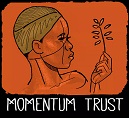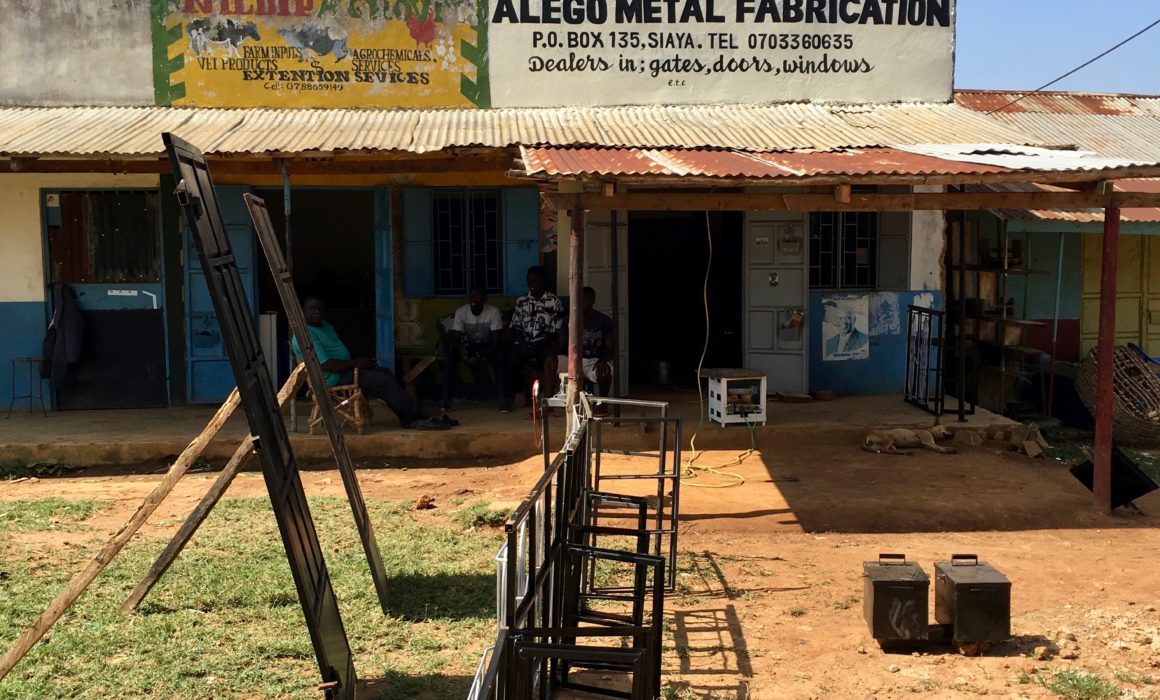Life in a Kenyan village is very different from the life that I am used to back home in Europe. One great difference is the shopping opportunities. Back home I had everything available from big supermarkets to specialty shops just a few minutes walk from my home. At my new home in the village of Uhuru, I face completely different possibilities.
Uhuru has around 50 inhabitants, which of course means no supermarkets and speciality shops. Yet there certainly is a commercial life going on here. Every day from late afternoon until the sun sets there is a small food market in the middle of the village. All the sellers are women, and they sit on the ground to display their goods. Most of them sell locally grown vegetables presented on a piece of canvas. Often there is also a whole row of women cooking delicious chapatis (Indian* flatbreads) and samosas – the fried smell always give me a craving. Sometimes there is also a smell of fish filling the air, as some women sell dried fish. I come here almost daily to buy for instance tomatoes, cabbage and my new discovery: sukumaviki – it is similar to kale and the market ladies pre-chop it so it is ready for cooking. Delicious!
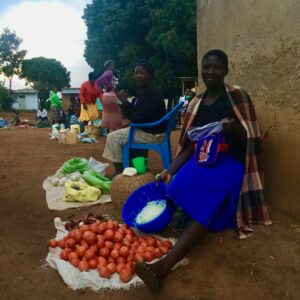
Lillian is always ready to chop some sukumaviki or cabbage for her market customers
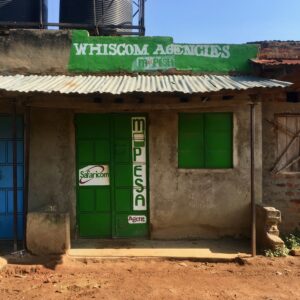
All around Kenya one can spot buildings painted in green advertising Safaricom and Mpesa
There are also several small shops in the village that sell basic necessities like washing powder, cooking oil and eggs. They are a bit like small kiosks. Luckily most sellers understand English and can help me with what I need.
If there is one kind of shop that I believe exists everywhere in Kenya, even in the most rural places, it is the stalls where you can top up your phone subscription. You see signs for Safaricom and Mpesa everywhere you go. Safaricom is the national telecom company and Mpesa is the infamous Kenyan mobile payment service. One of the first things I bought in Kenya was a Safaricom simcard. I still need to register for Mpesa, and once that is done I will be able to shop like a local!
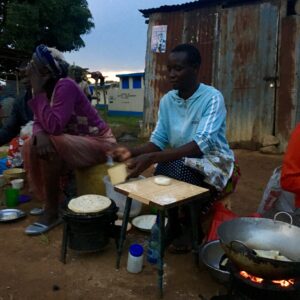
Rosalie’s market cooking smells so good making me crave her delicious chapatis
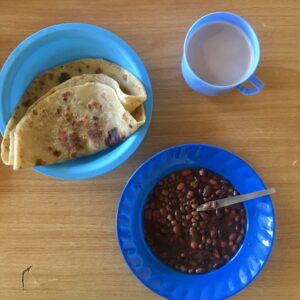
The take-away breakfast from the ‘hotel’ eaten at the office: beans, chapatis and milky tea
You might actually say that Uhuru has speciality shops. At least one finds several tailors who can stitch and fix your clothes with their old-fashioned sewing machines and they even iron your clothes. There is also a ‘metal fabrication’ workshop, which does all kinds of metal work: doors, shelves, closets… It is a very noisy kind of work, and it happens to be the neighbour of the Momentum office. To compensate, the shop also plays very loud music, which can be heard in most of the village. The noise and the music often complicate our office work, but that has to be taken with a smile. At least I am getting some insights to the local music taste.
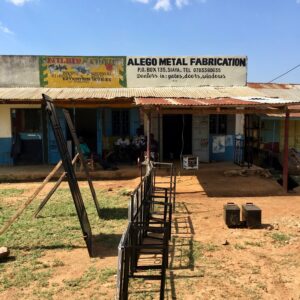
The neighbour of Momentum is the metal workshop that provides both nice music and loud metal work sounds
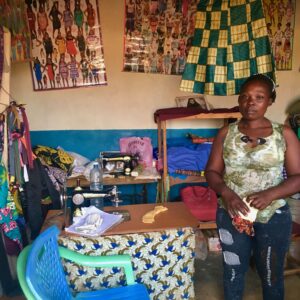
There are several tailors in Uhuru. The shops are always colourful displaying the many fabrics and pictures of all their styles
Finally, there is one ‘hotel’ in the village. A ‘hotel’ in Kenya is not a place you go to rent a room: these are small eateries and can be found in all towns. This hotel serves delicious chapatis, mandazis (sweet and greasy buns), milky tea and different bean dishes. From here the Momentum staff get their daily breakfast and lunch. The ‘hotel’ has also become my go-to take-away place, when I’m too lazy to cook on my own. And the take-away prices are incomparable to back home! I get full by paying 30 Kenyan shillings (2 DKK / 0,2 EUR).
If one wants to buy other products, such as coffee, chocolate and fruits, one has to go to the town. That means 20 min on the back of a motorbike. Locally, such a taxi ride is known as a boda boda. The closest town is called Ugunja: here you find a basic supermarket and bigger food markets. I went there for the first time after one week here, and I finally had my first cup of coffee!
*During colonial times, a great number of Indians came to East Africa. Their influence is still to be felt food-wise: chapatis, samosas, and milky tea.
Astrid Melchior Olesen, Momentum Trust intern
